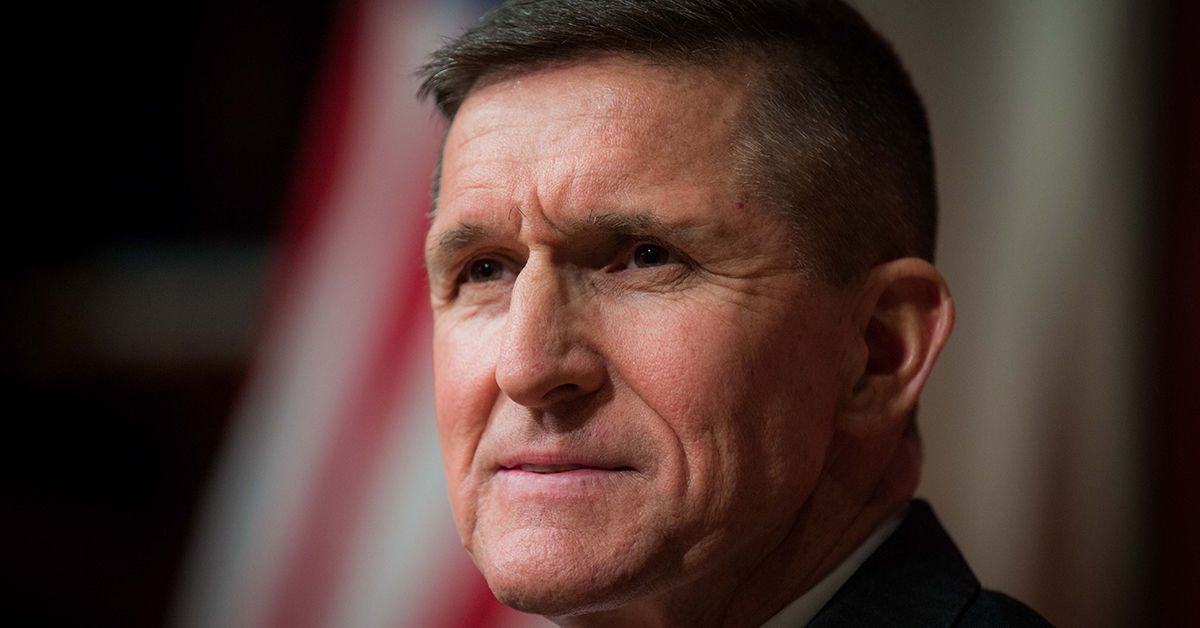Leading members of the House Oversight Committee announced on 25 April 2017 that they believe former National Security Advisor Michael Flynn not only violated the law by failing to disclose hundreds of thousands of dollars he received from Russia and Turkey, but that the Trump White House had refused their now month-old request to release documents related to the Flynn investigation.
Flynn, who served as President Trump's National Security Advisor for 24 days before being fired in February 2017 for misleading Vice President Mike Pence about his contacts with Russian officials, has been under scrutiny for financial ties to both Russia and Turkey. Those ties included a $530,000 pay-out for lobbying work for the Turkish government and $45,000 for an appearance at an RT event. (RT, formerly Russia Today, is an international television station funded by the Kremlin.)
After viewing classified documents on 25 April 2017, House Oversight Chair Jason Chaffetz (R-Utah) told reporters:
Personally I see no information or no data to support the notion that General Flynn complied with the law, in that he was supposed to seek permission and receive permission from both the Secretary of State and the Secretary of the Army prior to traveling to Russia to not only accept that payment but to engage in that activity. I see no evidence that he actually did that.
Chaffetz and the Committee's ranking Democrat, Rep. Elijah Cummings (D-Md.), both signed a 22 March 2017 letter asking for information including security clearances, documents relating to Flynn's contacts with foreign nationals and government officials, and payments received by Flynn from foreign sources. In the letter, the committee asked for the documents by 3 April 2017.
Instead of producing them in the specified time frame, White House Director of Legislative Affairs Marc Short sent a response on 19 April 2017 saying none of the documents requested would be released. He cited a number reasons, including that the White House did not have them or that the documents may contain classified information. Cummings told reporters the decision left the committee with no internal White House documents to review:
As part of our investigation, Chairman Chaffetz and I sent a bipartisan request to Reince Priebus, the White House Chief of Staff, requesting a wide range of documents, including any, “referring or relating to Lt. General Flynn’s contacts with foreign nationals.”
Despite all these very troubling developments, last Wednesday, on April 19, we received a response from the White House refusing to provide any of the documents we requested.
So, we have received no internal documents relating to what General Flynn reported to the White House when they vetted him to become National Security Advisor. And we have received no documents relating to his termination as National Security Advisor for concealing his discussions with the Russian Ambassador.
In short, the White House has refused to provide this Committee with a single piece of paper in response to our bipartisan request, and that is unacceptable.
Brian Klaas, a fellow in Global and Comparative Politics at the London School of Economics and expert in global democracy, said in an e-mail that the White House decision not to release the documents was troubling:
The Oversight Committee's existence is, in part, to hold the executive branch accountable for its actions. To do its job effectively, the White House needs to comply with appropriate requests for information about potential wrongdoing. It is appropriate and necessary that the Committee is hoping to get to the bottom of the Michael Fynn saga, given that he was a paid, unregistered foreign agent -- and given his shifting denials and lies about his contact with Russian officials during the transition period. Of course, the executive branch can, at times, invoke executive privilege to try to withhold certain information. But given this administration's lack of transparency already, it's hard to imagine that this is driven by a genuine national security concern as opposed to an attempt to save face from a publicly embarrassing scandal.
We reached out to the White House Press Office for comment and have not received a response.
Flynn registered with the Justice Department as a foreign agent in March 2017, after he was fired by the Trump administration. Shortly after, the White House confirmed that members of Trump's transition team knew before the 20 January 2017 inauguration that Flynn might do so.
